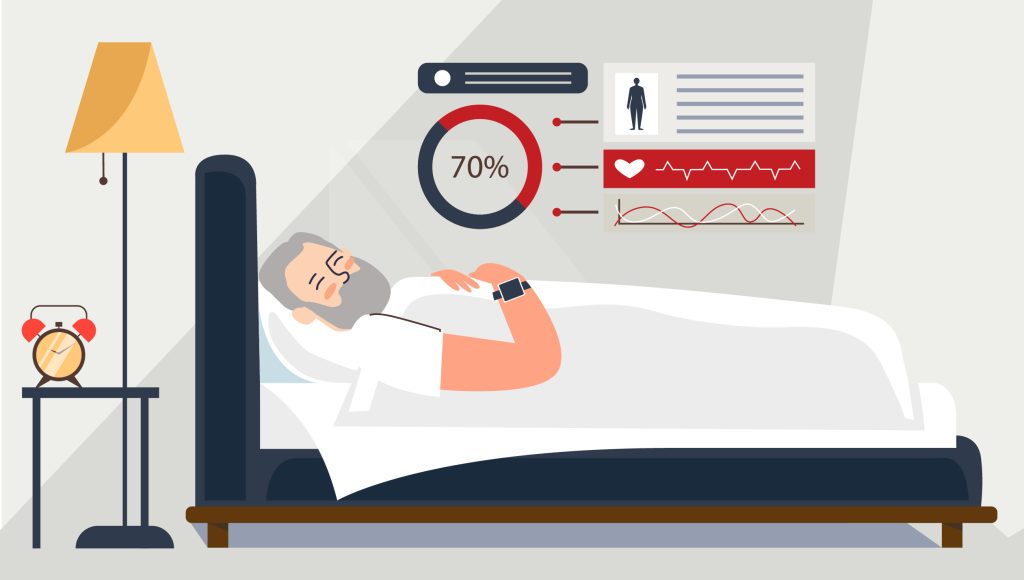Hypersomnia is a sleep disorder characterized by excessive daytime sleepiness despite adequate nighttime sleep. This condition affects approximately 5-10% of the general population and can significantly impact quality of life, work performance, and daily functioning. Understanding hypersomnia symptoms, causes, and available treatments can help individuals seek appropriate medical care.

What Is Hypersomnia?
Hypersomnia refers to a group of sleep disorders where individuals experience persistent excessive sleepiness during the day, even after getting sufficient nighttime sleep. Unlike occasional tiredness, hypersomnia involves an overwhelming urge to sleep that interferes with normal daily activities.
People with hypersomnia may sleep for extended periods—sometimes 11 hours or more—yet still feel unrefreshed upon waking. They may also experience difficulty waking up, prolonged sleep inertia (feeling groggy after waking), and the need for frequent naps during the day.
Types of Hypersomnia
Primary Hypersomnia
Primary hypersomnia occurs independently, without being caused by another medical condition. The main types include:
Idiopathic Hypersomnia: This condition has no identifiable cause and is characterized by prolonged nighttime sleep, difficulty waking, and non-refreshing naps. People with idiopathic hypersomnia often experience sleep drunkenness—confusion and disorientation upon waking.
Kleine-Levin Syndrome: A rare form of recurrent hypersomnia that occurs in episodes lasting days to weeks. During episodes, individuals may sleep 16-20 hours daily and experience behavioral changes.
Narcolepsy: A neurological disorder affecting the brain’s ability to regulate sleep-wake cycles, often accompanied by sudden muscle weakness (cataplexy) and sleep paralysis.
Secondary Hypersomnia
Secondary hypersomnia results from other medical conditions, medications, or lifestyle factors:
- Medical Conditions: Depression, anxiety, head injuries, brain tumors, or neurodegenerative diseases
- Sleep Disorders: Sleep apnea, restless leg syndrome, or insufficient sleep syndrome
- Medications: Certain antipsychotic medications, sedatives, or substances that affect the central nervous system
- Lifestyle Factors: Irregular sleep schedules, shift work, or chronic sleep deprivation
Recognizing Hypersomnia Symptoms
Common symptoms of hypersomnia include:
- Persistent sleepiness during waking hours
- Extended nighttime sleep (often more than 10 hours)
- Difficulty waking up despite alarms
- Feeling unrefreshed after sleep
- Frequent, unrefreshing naps
- Cognitive difficulties, including problems with concentration and memory
- Mood changes or irritability
The American Academy of Sleep Medicine emphasizes that these symptoms must persist for at least three months and significantly impact daily functioning for a hypersomnia diagnosis.
Diagnostic Process
Diagnosing hypersomnia requires comprehensive evaluation by sleep medicine specialists. The diagnostic process typically includes:
Sleep History Assessment
Healthcare providers gather detailed information about sleep patterns, duration, quality, and daytime functioning using tools like the Epworth Sleepiness Scale.
Sleep Studies
Polysomnography: An overnight sleep study that monitors brain activity, breathing, heart rate, and other physiological functions during sleep.
Multiple Sleep Latency Test (MSLT): This daytime test measures how quickly someone falls asleep in quiet situations and helps assess the degree of sleepiness.
Medical Evaluation
Comprehensive medical examination to identify underlying conditions that might contribute to hypersomnia, including blood tests to check for thyroid disorders, vitamin deficiencies, or other medical issues.
Treatment Approaches
Treatment for hypersomnia depends on the underlying cause and type:
Lifestyle Modifications
- Maintaining consistent sleep schedules
- Creating a peaceful sleeping environment
- Avoiding alcohol and caffeine before bedtime
- Regular physical activity (though not close to bedtime)
- Stress management techniques
Sleep Hygiene Practices
Good sleep habits form the foundation of hypersomnia management:
- Going to bed and waking at consistent times
- Limiting daytime naps when possible
- Creating a comfortable sleep environment
- Avoiding screens before bedtime
Medical Interventions
When lifestyle changes aren’t sufficient, healthcare providers may consider various treatment options based on individual circumstances and underlying causes. Treatment decisions should always be made in consultation with qualified medical professionals.
Cognitive Behavioral Therapy
Some individuals benefit from cognitive behavioral therapy for insomnia (CBT-I) or related approaches that address sleep-related thoughts and behaviors.
Living with Hypersomnia
Managing hypersomnia often requires a comprehensive approach:
Safety Considerations:
- Avoid driving when excessively sleepy
- Be cautious with activities requiring alertness
- Inform employers about the condition when appropriate
Support Systems:
- Connect with support groups or patient organizations
- Educate family and friends about the condition
- Work with healthcare providers to monitor symptoms
When to Seek Professional Help
Consult a healthcare provider if you experience:
- Persistent excessive daytime sleepiness lasting more than a few weeks
- Sleep that doesn’t feel refreshing despite adequate duration
- Difficulty functioning at work, school, or in relationships due to sleepiness
- Symptoms that worsen over time
Early intervention can help identify underlying causes and develop appropriate treatment strategies.
Hypersomnia is a legitimate medical condition that requires proper evaluation and treatment. While it can significantly impact daily life, many people find their symptoms improve with appropriate medical care and lifestyle modifications. Working closely with sleep medicine specialists can help develop an effective management plan tailored to individual needs and circumstances.